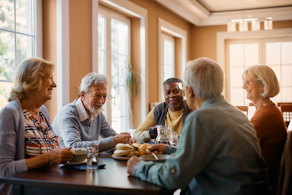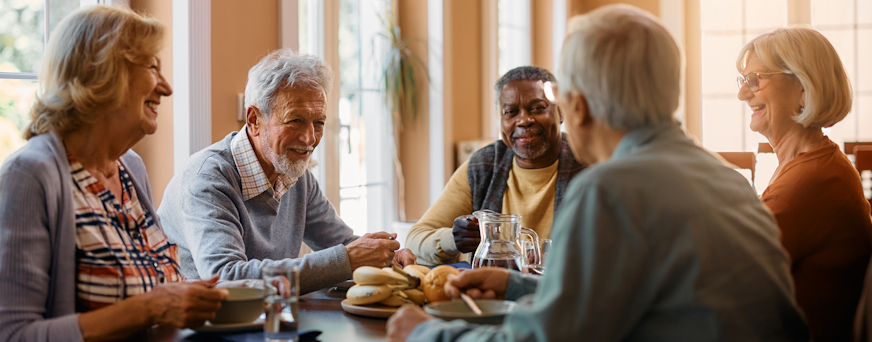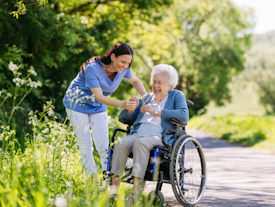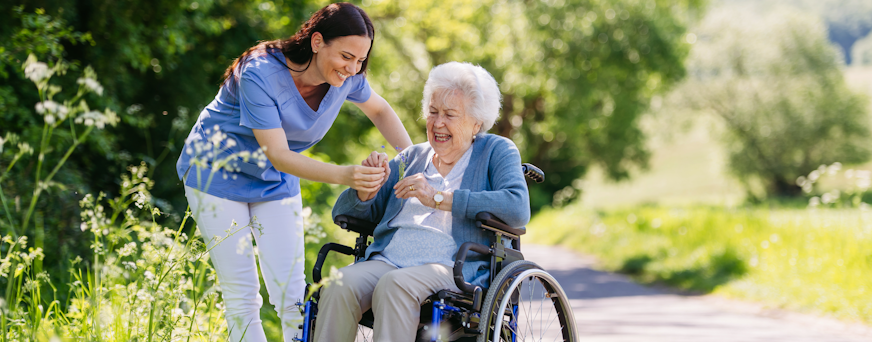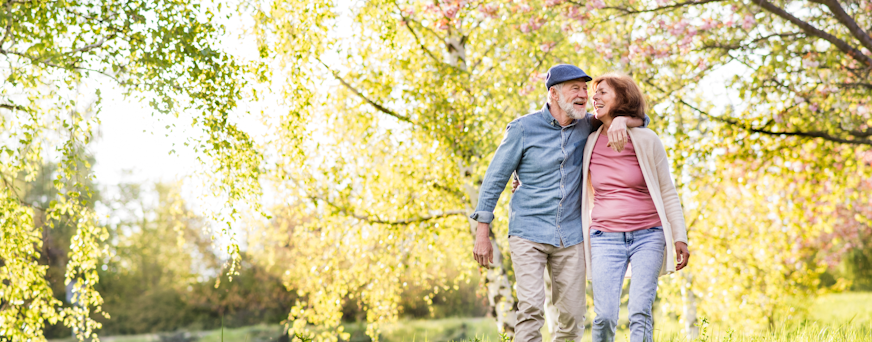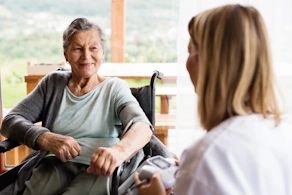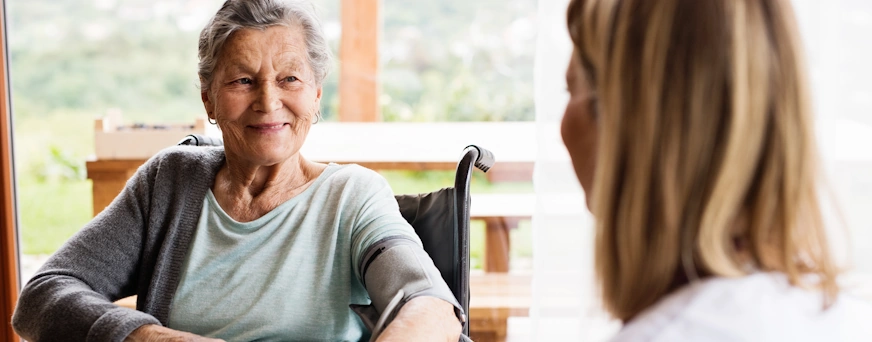Common Seniors Safety Issues and How to Address Them
Our Key Takeaway
Common senior safety issues include falls, medication errors, financial scams, social isolation, elder abuse, poor home safety, and lack of emergency preparedness. These risks can be reduced through home modifications, regular health and vision checks, medication organization, social engagement, financial awareness, caregiver oversight, and tools like medical alert systems. Proactive planning helps seniors stay safe, independent, and confident in daily life.
As people age, their susceptibility to different safety risks increases, and this should not be overlooked. In particular, older adults are experiencing stresses that influence their physical, emotional, and financial status.
If the causes are known and safeguards are put in place to improve the elderly's quality of life, these risks can be mitigated.
This article will discuss these challenges, make you aware of the various safety risks that seniors may encounter, and introduce ways to manage seniors' safety issues.
Life Assure Product Quiz
Take our 30 second quiz and discover which Life Assure medical alert device is the right fit for you or a loved ones.
Life Assure Product Quiz
Take our 30 second quiz and discover which Life Assure medical alert device is the right fit for you or a loved ones.
Exploring The Significance of Safety Preparedness for Seniors

Seniors’ safety requires consideration since the dangers they face stem from factors such as ill health, mobility impairments, and vulnerability to scams or abuse. Because the body’s capability to heal decreases as it ages, such misfortunes must be prevented.
Preventive measures are important for seniors as this helps them be more independent and leads to a better quality of life.
Family members and other caregivers remain a crucial factor in preventing accidents by incorporating safe practices.
Also, people get to embrace modern technology in a new way by having medical alert systems and home monitoring equipment information technologies to prevent seniors from increased vulnerability or risk situations.
Most Common Senior Safety Issues And Tips To Address Them Effectively

There are different safety challenges that seniors face in their daily lives, and each has specific ways of being managed. Below are some of the typical safety risks and how to avoid them.
Poor Health Leading to Falls
It is important to know that falls are one of the main reasons for injury as well as hospitalization among seniors.
When muscles become weak, body balance, strength, and coordination also decrease, and elderly people are more prone to falls that can lead to fractures, head injuries, and future mobility loss.
Tips to Address: Handrails and grab bars in the home, and the use of non-slip matting will also help minimize falls.
Also, it’s important to pay attention to lighting in such areas as hallways and stairwells that people use more often. Eyesight check ups can help check on some of the causes of falling such as poor eyesight.
Medication Safety
In many cases, elderly residents use multiple drugs and as a result, they are more prone to issues such as missed medication doses, overdose, or drug interactions. Maladministration of drugs has negative impacts on the health of a person such as leading to hospitalization.
Tips to Address: To improve the safety of medications seniors should maintain a list of all medications taken and provide them to healthcare providers. The portions used in the month can be placed in a pill organizer while a medication reminder app will also prove useful.
This means that people should ensure that they discuss their medicines with their doctors to avoid instances where the doctor prescribes the wrong medicine or where the interaction between medicines is terrible.
Financial Exploitation
Financial abuse such as fraud schemes has become rampant especially because elder people are considered easy targets. Frauds may extend to phone lotteries, internet frauds, or any unauthorized access to any individual’s financial accounts.
Tips to Address: Elderly people must be informed about frauds, such as people who contact them by telephone or email requesting information on identity or money matters.
One can rely on family members or other trusted people to handle finances, and when it comes to checking and using accounts, several alerts can be set to inform seniors and caregivers about certain unusual operations with the money.
Social Isolation and Loneliness
Due to seniors safety issues like social isolation, an individual is likely to develop feelings of loneliness hence affects the health of the affected person through depression and anxiety.
Tips to Address: Keeping social contacts, visiting friends, and other activities within the community should be encouraged with the old people. Retired people can engage in activities at senior centers or clubs to have something to do and also feel useful.
Besides, it’s possible to use some or all of the available technologies like video calls or social media to ensure that the elderly feel connected with their loved ones despite the physical distance.
Elder Abuse
Elder abuse can be physical, can be emotional, can be in the form of financial misuse and lastly, it can be in form of neglect. This type of abuse affects seniors that depend on caregivers especially because it may be unnoticeable if not for regular checkups.
Tips to Address: Daily visits by family members, friends or neighbors will help in identifying such abuses.
Employers should ensure that caregivers undergo a rigorous screening process including criminal background checks and seniors also ought to be empowered to report any abusive behavior that they feel is being directed towards them.
Someone needs to call the police if he or she suspects that a senior has been abused.
Poor Home Safety
Risks may occur in a senior’s home due to the different physical changes that may make the home uncomfortable and dangerous for the senior.
Some conditions that may contribute to possible injuries include; dirty corridors, wet floors, and poorly done electrical wiring among others.
Tips to Address: When a home safety evaluation is done, it can help identify areas of risk factors. Clear the clutter, anchor loose rugs, and make sure that items used most often in the area are within easy reach.
Fire alarms and carbon monoxide detectors must exist and be checked from time to time. This is especially so where the client has mobility problems. Therefore, using ramps or stair lifts in the house can assist in achieving the independence a client needs while preventing possible accidents.
Emergency Preparedness
Elderly people, being either less mobile or sick, always have weaker bargaining power during calamities or disasters. Therefore, it is crucial to make sure that they are ready for the worst, as it will be helpful.
Tips to Address: Every older person must prepare an emergency contact plan accompanied with medicines, and other essential health details. Call buttons or wrist bands and any other piece of wearable technology assist in gaining help during a fall or a medical episode.
Final Thoughts
It is important to look at measures that would improve the safety of seniors to ensure that they remain healthy and are able to carry out their daily activities. Knowing about the seniors safety issues that they have to face and how to do so, seniors and their close ones can design better conditions for their living and thus improve their quality of living.



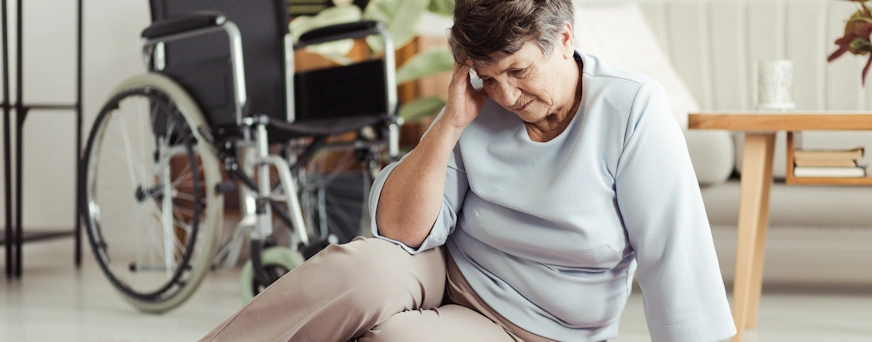







 Get Help With The Push Of A Button
Get Help With The Push Of A Button







